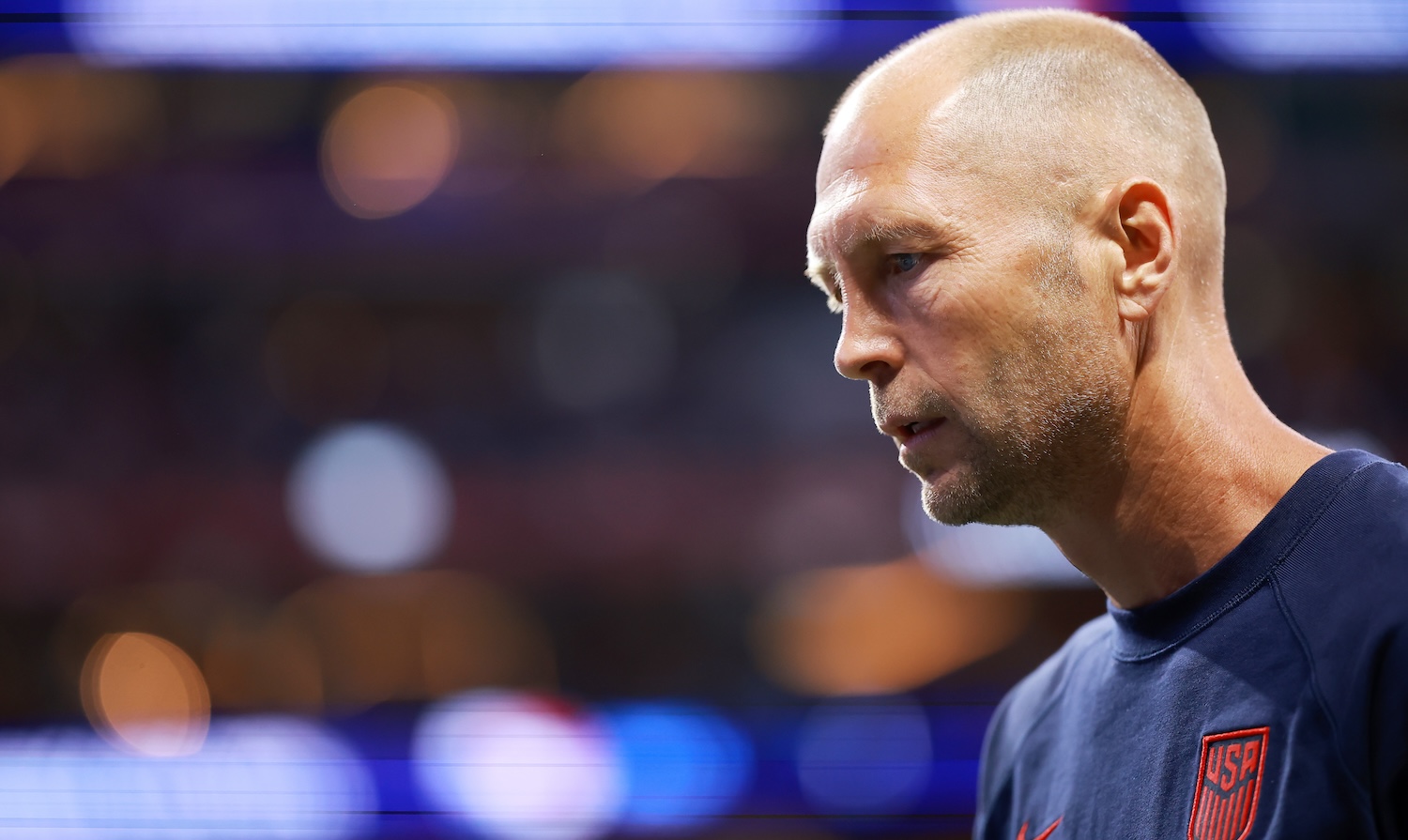In the days following the United States men's national team's unceremonious 3-1 loss to the Netherlands at the World Cup in 2022, I remember being struck by the way the two coaches talked about the match, showing, in the negative, what newly fired USMNT coach Gregg Berhalter's legacy would wind up being.
Berhalter framed the loss as a disappointing blip on the Americans' otherwise pleasant, providential march to the top of the sport. "I think we made some progress," he said. "We have a very young group and they are going to catch up to that. I'm really proud, when you think about how this group came together over the last three years, it's really special to see." Meanwhile, Louis van Gaal was dumfounded that the U.S. never made a single adjustment to his team's strategy of attacking the flanks. "We based a tactical plan on that that probably allowed us to win," he said. "I would assume that the stronger the country is, the less they’ll adjust to the system. The USA didn’t adjust. We based our tactical plan to that, and that allowed us to win."
International soccer is an enterprise of considerable scope, with administrators in charge of managing sprawling player pools, overseeing training and identification regimes on national scales, and thinking about the game in decades-long arcs. What makes it so special is that those epochal planning timelines are resolved in 90-minute segments of time subject to all manner of aberrant outcomes and moments of brilliance, to the point that it is difficult to extrapolate one from the other. The two-part Berhalter era was one of renaissance, as he inherited the smoldering wreckage of the USMNT after Bruce Arena failed to qualify for the 2018 World Cup. He did his job of modernizing the player pool and bringing up the younger generation, stressing in the process, as he did after the loss to the Dutch, that his young team was a work in progress.
That may have been true in 2018, though it only arguably held until 2022, and certainly isn't the case in 2024. The Copa América was the first time the USMNT faced something close to actual expectations, and they faceplanted. This team's era as a work in progress, a nascent group of players from whom it is unfair to expect anything besides symbolic performances, is over. The USMNT under Berhalter was remarkably consistent, taking care of business against bad teams, holding their ground against a historically bad Mexico team, and losing to almost every single team that posed a stern challenge. The high point of Berhalter's tenure is the 0-0 draw against England in Qatar. He mostly relied on the same group of players, and while the team toggled through a couple of different levels of aggression, they mostly played the same way. The line was always that these guys are young and developing, and there was a true sense of safety and camaraderie. One reason why the Reyna family's attempted blackmailing of Berhalter stood out was that he talked about the USMNT as a college team, a group of buddies all learning to play soccer together.
Christian Pulisic is about to start his ninth season as a professional. Weston McKennie turns 26 next month. The best domestic developmental success under Berhalter's watch, Tyler Adams, is hoping to recover from a second serious injury in time to play for his third different team in the past four years. They and their cohort have been sheltered by low expectations with the national team, and no matter who replaces Berhalter, the time for that has passed. The World Cup starts in two years, when most of these guys will be in their primes, and the expectation should be to win at least one knockout round game for the first time in what will be 24 years.
In the past month, I've seen this group referred to as a "golden generation" more than I ever have before. This, to me, is 180 degrees wrong. The term implies a sui generis influx of enormous talents that by its very nature can't be repeated, with the expectation that the team's quality will fall off dramatically once this group graduates. The only guy anywhere close to world-class level in the player pool right now is Pulisic, and while Gio Reyna and Folarin Balogun maybe have the potential to someday play serious roles on great teams, the greater group's improvement has been a general one, the tide rising and the standard slowly, sustainably increasing on a very large scale. Applying the "golden generation" label means perceiving the country's steady and admittedly impressive incline as a plateau. It's sort of precious in the wrong way.
The present generation's international record as it stands now is wholly unimpressive, in part because they've yet to be seriously pushed to reach beyond what we've already seen. The rarity of games against actual good teams means it's always kind of tricky to tell how good the USMNT actually is, but that's not a strong enough argument for low expectations. The goal should be to grow, to win, to get better and also go further than ever before. Whoever takes over should have that as their mandate and should conceive of the goal as both difficult and worth pursuing.






